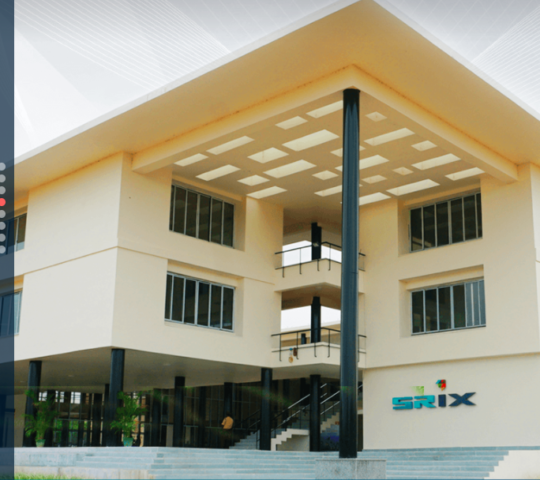Hightlight
-
 Auditorium
Auditorium
-
 Cafeteria
Cafeteria
-
 Computer Center
Computer Center
-
 Health Center
Health Center
Overview
University colleges of engineering typically offer undergraduate and graduate programs in various engineering disciplines. They focus on providing education, research opportunities, and practical training in areas such as civil engineering, mechanical engineering, electrical engineering, computer science, chemical engineering, and more.
These institutions often have strong ties to the industry and emphasize hands-on learning experiences, internships, and co-op programs to help students gain practical skills and real-world exposure. They may have well-equipped laboratories, research centers, and collaboration with industry partners to facilitate research and development activities.
Moreover, university colleges of engineering usually have a faculty consisting of experienced professors and experts in their respective fields. They often engage in cutting-edge research, publish scholarly articles, and collaborate with other institutions or industries on various projects.
It’s important to note that the specific programs, facilities, research focus, and reputation of a university college of engineering can vary significantly from one institution to another. Therefore, if you have a particular university college in mind, it would be helpful to provide more specific information to obtain accurate and detailed information about that institution.
UCE Telangana highlights
| Ranked in NIRF | 117 |
| UG Median Salary | 6.6L |
| Ownership | Private |
| Genders Accepted | Co-Ed |
| Estd. Year: | 2006 |
| Campus Size: | 9.27 |
| Total Faculty: | |
| Total Approved Intake | 639 |
UCE Telangana Placement and Salary Trends
| 6.6L | 413 | 58L |
| UG Median Salary | Total Offers | Max Package |
Contact
FAQ's
What engineering disciplines are offered at the University College of Engineering?
The specific engineering disciplines offered can vary depending on the institution. Common disciplines include civil engineering, mechanical engineering, electrical engineering, computer science, chemical engineering, aerospace engineering, and more. It's best to visit the specific university college's website to see the complete list of disciplines they offer.
What are the admission requirements for the University College of Engineering?
Admission requirements can vary from institution to institution. Generally, they include a high school diploma or equivalent, satisfactory grades in prerequisite courses (such as math and science), standardized test scores (such as the SAT or ACT), and submission of an application form. Some universities may have additional requirements or specific criteria for engineering programs. It's advisable to visit the college's admission website or contact their admissions office for detailed and up-to-date information.
Are there research opportunities available for undergraduate students?
Many university colleges of engineering offer research opportunities for undergraduate students. These opportunities can include working on faculty-led research projects, participating in research internships or co-op programs, or pursuing independent research projects. Research experiences can provide valuable hands-on learning and enhance the understanding of engineering concepts. Students can reach out to faculty members or explore research centers or departments within the university college to learn about specific research opportunities.
What types of facilities and resources are available at the University College of Engineering?
Facilities and resources can vary based on the institution. However, engineering colleges typically have well-equipped laboratories, computer facilities, research centers, libraries, and access to specialized equipment and software relevant to different engineering disciplines. Some universities may also have dedicated engineering buildings or spaces for collaborative work. It is recommended to visit the specific university college's website or contact their engineering department for detailed information on the facilities and resources they provide.
Are there opportunities for industry collaboration and internships?
Many university colleges of engineering maintain strong connections with the industry. They often have partnerships with companies, research organizations, and government agencies, which can provide opportunities for internships, co-op programs, and industry-sponsored projects. These collaborations can help students gain practical experience, network with professionals, and increase their chances of employment after graduation.




